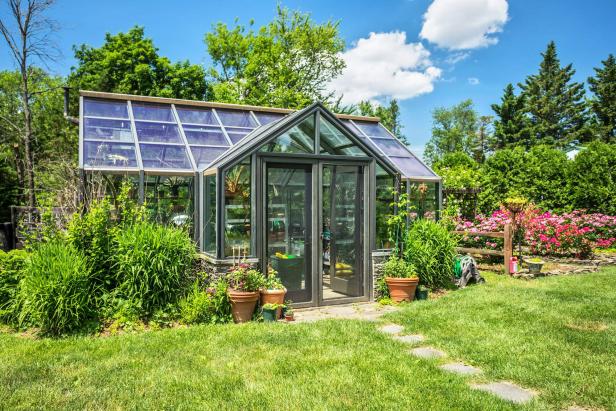Greenhouse Farming: Optimizing Crop Yields and Sustainability
With regulated environments and minimized water use, greenhouse farming offers the excellent service for year-round manufacturing of fresh fruit and vegetables. Discover the benefits of greenhouse farming and begin enjoying the benefits today!
Advantages of Greenhouse Farming
Are you wondering what makes greenhouse farming so helpful? One of the significant advantages of greenhouse farming is the ability to manage the atmosphere in which plants are expanded.
One more benefit of greenhouse farming is the decrease in water usage. By utilizing water extra effectively, greenhouse farming helps to preserve this valuable source.
In addition, greenhouse farming permits better parasite and disease administration. With the controlled atmosphere, it is much easier to stop and regulate the spread of insects and conditions. This minimizes the need for dangerous chemicals, making greenhouse-grown crops much safer and extra environmentally friendly.
Additionally, greenhouse farming supplies defense versus severe weather events. Crops grown in greenhouses are shielded from heavy rain, strong winds, and hailstorms, which can damage or ruin outside crops. Monarch Greenhouse installation Utah. This defense ensures an extra secure and reliable plant return, also throughout unforeseeable climate condition

Taking Full Advantage Of Crop Returns With Regulated Atmospheres
To maximize crop yields in greenhouse farming, you can accomplish ideal outcomes by regulating the setting. One of the key advantages of greenhouse farming is the ability to control these environmental aspects, enabling you to customize them to the certain demands of each plant. By applying these regulated settings, you can maximize crop yields and attain regular, high-quality produce throughout the year.
Promoting Sustainability Via Greenhouse Farming
Maximize sustainability in greenhouse farming by implementing efficient resource monitoring strategies. One crucial element of promoting sustainability is the management of water usage. By implementing systems such as drip watering and recirculation, you can dramatically minimize water waste and guarantee that every drop matters. In addition, utilizing organic and naturally degradable products for bug control and fertilization can aid decrease environmental impact. Integrated Bug Administration (IPM) techniques, for instance, include using beneficial pests to manage bugs, minimizing the demand for unsafe chemicals. Energy intake can be decreased by utilizing sustainable energy resources, such as solar panels, to power greenhouse operations. This not only lowers reliance on fossil gas however also reduces greenhouse gas emissions. Appropriate waste management is one more crucial component in promoting sustainability. Carrying out recycling and composting systems can reduce the quantity of waste sent out to landfills while additionally providing nutrient-rich compost for plant development. Incorporating lasting techniques in greenhouse design, such as utilizing energy-efficient products and maximizing natural illumination, can better enhance sustainability. By adopting these resource monitoring strategies, you can contribute to a much more lasting future in greenhouse farming.
Decreasing Water Usage in Greenhouse Farming
By executing effective water administration methods, you can substantially lower water use in greenhouse farming. Water is an essential source in farming, and preserving it not just benefits the atmosphere however likewise helps to take full advantage of crop yields and profitability. One efficient method to reduce water use is via making use of drip irrigation systems. These systems provide water directly to the plant's origins, decreasing dissipation and making sure that every decrease is used efficiently. In addition, tracking and managing the humidity degrees inside the greenhouse can stop unnecessary water loss. By using sensing units and automated systems, you can readjust the ventilation and irrigation as necessary, enhancing water usage based upon the certain needs of your plants. One more technique is to capture and reuse rainwater. Collecting rain from the greenhouse roofing system and saving it in storage tanks allows you to supplement your watering needs without counting entirely on freshwater resources. Implementing mulching strategies can help maintain soil wetness, reducing the regularity of watering. Mulch serve as an obstacle, avoiding water dissipation and keeping the dirt cool and moist. By taking on these water-saving methods, you can decrease water waste, conserve sources, and develop a more lasting future for greenhouse farming.
Year-Round Production of Fresh Create in Greenhouses
Greenhouses give a controlled setting that allows you to grow plants regardless of the external climate conditions. Greenhouses can be furnished with home heating and cooling systems to preserve optimum temperatures for various plants. By executing these methods, you check can maximize the efficiency of your greenhouse and appreciate a stable supply go now of fresh create all year long.

Final Thought
In verdict, greenhouse farming provides various benefits for making best use of crop yields and promoting sustainability. By utilizing controlled atmospheres, farmers can maximize expanding problems and increase productivity. Additionally, greenhouse farming enables decreased water usage, making it an eco-friendly option. In addition, the capacity to generate fresh fruit and vegetables year-round in greenhouses makes certain a constant supply of nourishing food. Generally, greenhouse farming is a efficient and sustainable approach for satisfying the demands of an expanding populace while lessening environmental impact.
One of the major advantages of greenhouse farming is the capability to control the setting in which crops are grown.To make best use of plant yields in greenhouse farming, you can attain ideal results by regulating the atmosphere. One of the key benefits of greenhouse farming is the capability to manage these environmental elements, permitting you to tailor them to the specific requirements of each crop.By applying effective water management strategies, you can substantially reduce water use in greenhouse farming.In final thought, greenhouse farming gives many advantages for maximizing plant returns have a peek at these guys and promoting sustainability.